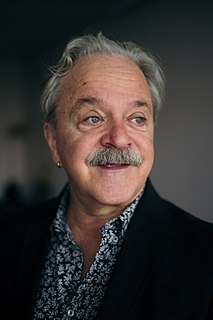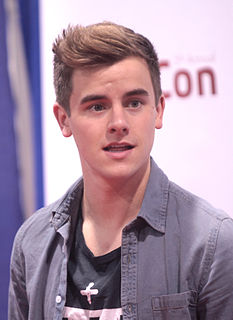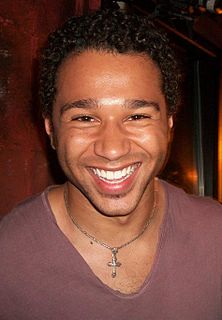A Quote by Debbie Reynolds
'How the West was Won' was very hard, because it was a three cameras technique, meaning three cameras wide. Therefore I wasn't speaking to my fellow performer, I was speaking to a camera, or a line next to the camera. It was difficult to do, because its not real acting. I had to pretend that I was 'seeing' Agnes Moorhead or Jimmy Stewart or Carroll Baker. I wasn't, I was acting to a drawn line. It took me personally two years to make the film, because my character starts at age 16 and I end up being 92 years old in the film. By the end of that production, I was ready for a long nap.
Quote Topics
Acting
Age
Baker
Because
Being
Camera
Cameras
Character
Difficult
Drawn
End
Fellow
Film
Had
Hard
How
Jimmy
Jimmy Stewart
Line
Long
Make
Me
Meaning
Nap
Next
Old
Performer
Personally
Pretend
Production
Ready
Real
Seeing
Speaking
Starts
Technique
Therefore
Three
Took
Two
Two Years
Up
Very
West
Wide
Years
Related Quotes
I do very little on-camera acting, so within a phrase as a voice actor you have to know how to convey when someone is 95 years old or 19 years old. . . When I was the lead singer of the California Raisins commercials there was a traditional actor there as well and he would do all these body movements without saying anything because he was "acting." And the only acting the microphone picked up on was silence.
I wanted to be a jazz pianist, but I wasn't good enough. I got into city college because I didn't have the grades to get into university. I took acting because it was a way to get three credits. I just needed three credits and my friend told me to take acting because it was like gym - nobody fails you. I took it and that's literally how I got involved in acting.
Most people assume because I'm an actor that's all I know about and care about, I'm actually a camera geek and a film geek. I grew up making short films the same time I was acting. For me, it's a motion picture, not a play. I'm just as interested in what the camera department is doing and world building through costume design and production design as I am in acting. I think all good directors do that whether they're an actor or not.
This uses a lens system, which I have used for years in various different ways, but I've never used it in the context of an interview. This is the very first time that I've done that. It's a lens called The Revolution, so it allowed me to interview Elsa [Dorfman] and actually operate the camera. Well one of the cameras, because there were four cameras there.
Film, television, and working with a camera is such an intimate art form that if a camera is right on you, and I've got your face filling the screen, you have to be real. If you do anything that is fake, you're not going to get away with it, because the camera is right there, and the story is being told in a very real way.
There's something very satisfying about old cameras because they're ingenious. I mean when you take them apart and actually see, 'Oh, this is how we make photographs,' it's an ingenious thing, but it feels like it's in a way a layman can appreciate, whereas a digital camera, I don't even begin to know what goes into making a digital camera.




































